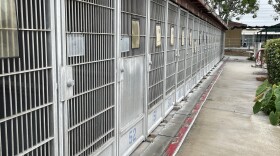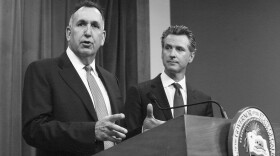On many economic issues, Americans are deeply divided. But when it comes to giving pay raises to minimum wage workers, voters overwhelmingly say: Do it.
That message jumped out Tuesday when more than 6 in 10 voters in New Jersey approved an increase in their state's minimum hourly wage. In January, the wage will rise to $8.25, well above the federal minimum of $7.25 an hour.
And in SeaTac, Wash., home to Seattle-Tacoma International Airport, voters sent an even louder message to employers. They approved a minimum wage of $15 an hour for roughly 6,300 low wage workers whose jobs are at or near the airport. So car rental employees and air terminal food service workers will all be getting hefty raises.
Such votes have become routine in the past few years as 21 states, the District of Columbia and scores of cities have boosted wages above the federal minimum. In at least four more states, groups already are gathering signatures to put measures on the ballot next year. And legislatures in four more states are weighing wage hikes.
Polls typically show that minimum wage hikes win the support of at least 2 out of 3 voters. For example, a Gallup poll taken earlier this year showed 71 percent of Americans would approve a wage hike.
"Minimum wage is a cyclical issue for the states," said Jeannie Mejeur, a senior researcher for the National Conference of State Legislatures. "When the federal minimum wage hasn't been increased for several years, then the states start looking at it."
But while wage increases generally win votes at the state and local level, Congress is slow to act on raising the federal level. The wage had been frozen at $5.15 an hour from 1997 to 2007. That year, Congress approved an increase spread over two years. The final tick upward came in July 2009, when the wage went to $7.25 an hour.
During his State of the Union address last winter, President Obama called upon Congress to raise the rate to $9 an hour by 2015. After hitting that level, the wage thereafter would be indexed to inflation, allowing it to rise automatically. Pushing up the wage floor would help 15 million workers, he argued.
"We know our economy is stronger when we reward an honest day's work with honest wages," Obama said. "But today, a full-time worker making the minimum wage earns $14,500 a year."
The following morning, House Speaker John Boehner, an Ohio Republican, made it clear he would oppose wage legislation.
"When you raise the price of employment, guess what happens? You get less of it," Boehner said. "At a time when the American people are still asking the question, 'Where are the jobs?' why would we want to make it harder for small employers to hire people?"
Since that time, Sen.Tom Harkin, an Iowa Democrat who is chairman of the Health, Education, Labor and Pensions Committee, has introduced a bill to push the wage to $10.10 an hour and index it to inflation.
Now Senate Majority Leader Harry Reid, a Nevada Democrat, is saying he will bring up the legislation soon. Unions and other groups that support higher wages insist the state and local votes have provided the political momentum Reid will need to push Congress to act. And they point to support from scores of top economists who have signed a petition, saying the wage has gotten too low after taking into account inflation.
Most business groups remain deeply opposed.
"Labor costs are one of the most significant line items for restaurants," Melvin Sickler, who owns franchises of the Auntie Anne's Pretzels and Cinnabon brands, told the Senate at a March hearing on wages. A round of federally forced wage increases "would be very difficult for my business to withstand."
But not all companies agree, and some -- including Costco -- have joined a coalition called Business For a Fair Minimum Wage. One supporter, Dan Preston, co-owner of Telequest Inc., a video company in Princeton, N.J., released a statement saying: "The costs of higher wages are offset through greater consumer demand, increased employee productivity and substantial savings from reduced employee turnover, for example."
NPR reporter Jim Zarroli contributed to this story.
Copyright 2013 NPR. To see more, visit www.npr.org.





